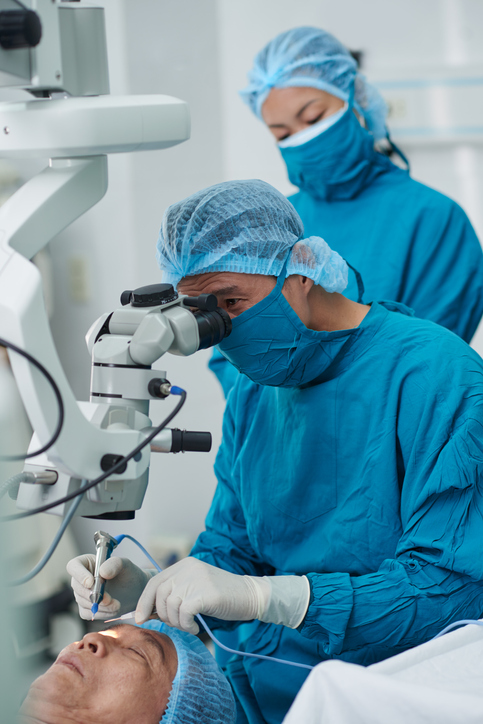Ophthalmology is the branch of medicine that deals with the anatomy, physiology and diseases of the eye. All evaluations that purport to diagnose eye disease should be carried out by a physician. An ophthalmologist is a doctor of medicine who specializes in the diagnosis and treatment of disorders of the eye, in addition to diagnosing systemic disease that manifest in eye signs or symptoms. Some of the common eye conditions are
- Glaucoma – a disease of the optic nerve, related to excess pressure inside the eye
- Cataract – a disease where the lens of the eye becomes cloudy enough to obstruct vision
- Retinal Diseases – diseases of the retina, the layer of nerve cells lining the back of the eye to sense light and create impulses to the brain where they are recognized as an image
- Corneal Diseases – diseases affecting the cornea, the clear front window of the eye that covers the iris (the colored part of the eye) and the round pupil
- Eyelid Disorders – disorders and conditions related to the eyelid and even the eyelashes
- Neuroophthalmology – conditions caused by brain or systemic abnormalities that cause visual disturbances
- Pediatric Eye Conditions – eye issues that typically emerge in childhood or adolescence, including ‘lazy eye’ or crossed eyes


